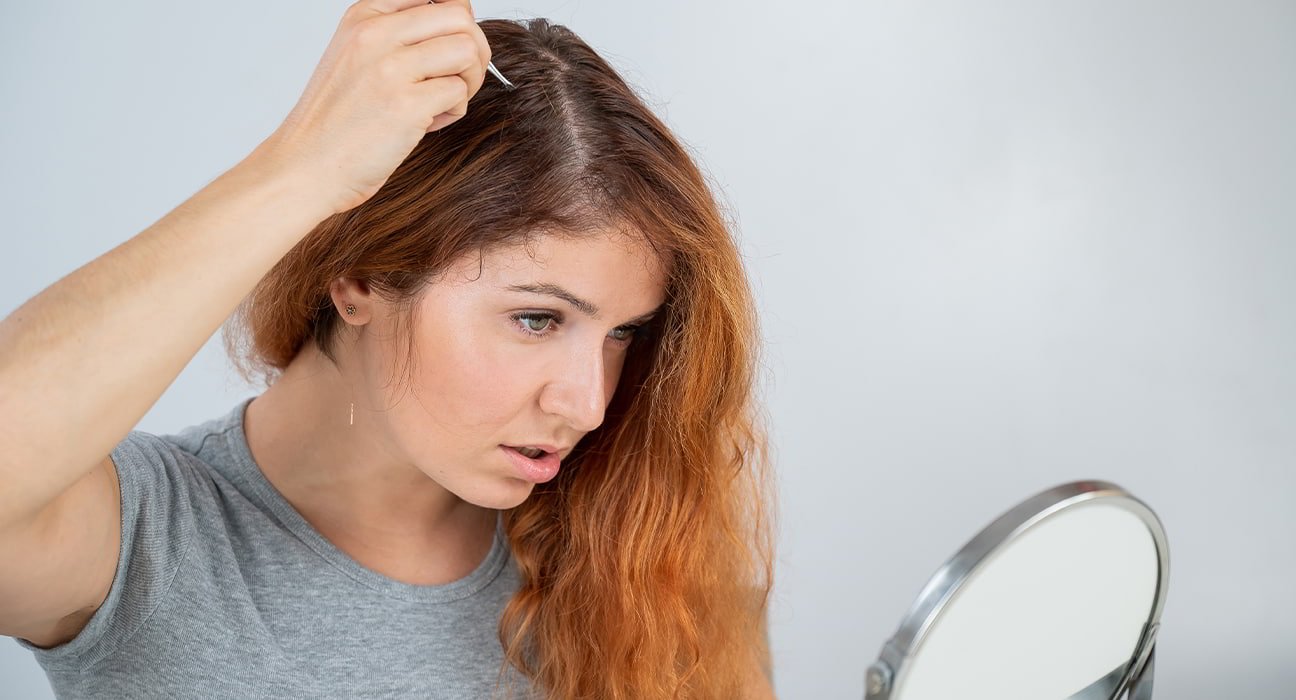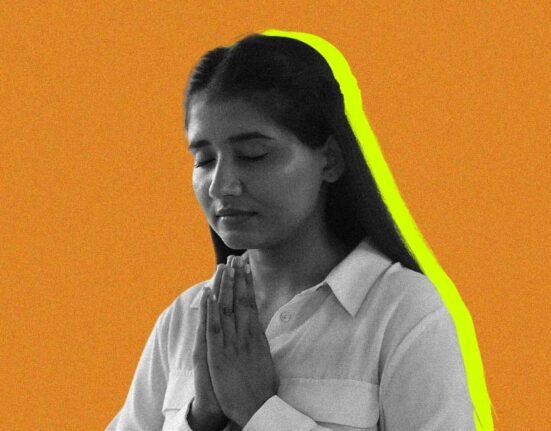Scalp hair is more important socially and psychologically than it is biologically to humans. Hair serves no purpose in humans other than providing cranial cushioning and protection from the sun’s rays. Beyond its socioeconomic significance, hair can become an important component of self-identity or “body image.” Scalp hair makes a statement. A full head of hair is interpreted as a sign of gender, youth, vigor, and status. Scalp hair is a distinct feature of the human body that may be altered and restyled as one desires. It takes little time to color, cut, and curl. In contrast, any modification in other body parts would need major efforts and time, include artificial adornments, or entail numerous surgical procedures.
The expression “bad hair day” reflects the psychological importance of hair. A person with hair loss may have a “bad hair day” every day. A patient suffering from hair loss experiences a range of emotions as a result of personal and social pressures. Hair loss can induce psychological stress that is disproportionate to the condition. This is exacerbated by the widespread advertising of hair treatments and concealment techniques in movies, television, newspapers, and social media.
Also Read: Understanding Gender and Sexuality in Psychology
The Effects of Hair Loss
Hair loss at a young age due to non-scarring androgenetic alopecia (AGA) or pattern hair loss (PHL) can make you feel less physically and socially attractive, less masculine, less likable, and have lower self-esteem. The severity of these symptoms is directly related to the severity of AGA. Psychological stress is more pronounced in women than in men. Hair is a woman’s greatest beauty and pride. She believes that this contributes to her own femininity and attractiveness. Any manifestation can be traumatic for a woman’s self-esteem and identity, especially if it occurs at a young age. Hair loss is also recognized as premature aging in older women, leading to loss of sexual attractiveness and masculinity towards her partner. Women are under greater social pressure than men due to low acceptance of cosmetics.
According to counseling psychologist Anjali Seth, hair loss can have a serious impact on people’s self-esteem, if they already have appearance issues or low self-esteem before the hair loss starts. They become much more concerned about their appearance and how they will represent themselves in society. People keep thinking about their looks, due to which they have to face problems like stress and overthinking.
Also Read: Helpful Breathing Techniques for Meditation
Therefore, baldness will have even more negative consequences for them and worsen their living conditions. The difference between emotions and psychology in hair removal is that emotions are what patients feel or experience and psychology is how doctors perceive these emotions. Patients may feel sad or depressed, but it is the doctor’s job to diagnose depression. The emotions caused by hair removal can be so unbearable that they interfere with the patient’s daily life.
As a result, social activities may be limited, family events avoided, and significant amounts of time and money spent on hair care. These behavioral influences are seen not only in men but also in women. A study by Hunt and McHale showed that about 40% of women with alopecia had marital problems, and about 63% reported work-related problems. Even people with the same degree of alopecia may have different psychological reactions. Some people respond physiologically normally, some have a borderline psychosomatic illness, and others may have an underlying mental illness.
According to clinical studies
20-48% of patients undergoing cosmetic surgery may also have a psychiatric diagnosis. Mild to severe symptoms o psychological problems related to hair loss include anxiety, anger, depression, embarrassment, decreased self-confidence, decreased work and sexual performance, social withdrawal, and suicidality. These are similar to those that typically occur in serious, life-threatening chronic illnesses. In contrast to PHL, alopecia areata is a chronic disease with an incidence. It starts very suddenly and causes sharp circular hair loss. The exact etiology is largely unknown. Factors known to be involved in its development include genetic, immunological, environmental, infectious, or psychological factors.
The significant impact on quality of life associated with alopecia areata and its psychological factors is being investigated in more detail. Patients with alopecia areata are more likely than others to experience social and family problems and have also been reported to have a reduced ability to cope with events. Trichotillomania is a disorder characterized by a compulsive, repetitive, and irresistible urge to pull out hair from the scalp, eyebrows, and other parts of the body.
This is a disease characterized by chronic hair pulling, which negatively affects the quality of life, not only of the patient but also of his family. This disorder is primarily a psychiatric obsessive-compulsive disorder. Although the disease is easily diagnosed through the patient’s medical history and examination, patients usually avoid reporting problems because they are ashamed and afraid of being ridiculed.
Also Read: Virtual Autism Alert: Dangers of Excessive Screen Time for Your Toddlers’ Development
Hair Loss-Related Disorders
Cicatricial alopecia is a pathological disease characterized by hair loss due to fibrosis of the hair follicle structure. Whatever the underlying reason, the psychological impact of cicatricial alopecia is usually greater than that of non-scarring alopecia. Psychiatric disorders associated with hair loss are broadly divided into adjustment disorders, which may depend on the severity of hair loss, and personality disorders, which may be psychopathological and may be hypochondriasis or body dysmorphic disorder (BDD).
Patients with hypochondriacal disorders are preoccupied and obsessed with fear of serious illness due to misconceptions of normal bodily functions, even in the absence of abnormalities. Medical examinations and counseling to rule out medical conditions do not alleviate symptoms. Psychological pseudoalopecia is a classic example of this disorder, which usually appears in middle age and persists into old age.
According to Clinical Psychologist Neelima Dhawan, prolonged physical illness can also cause mental illness. Balance is required between mental and physical health for a healthy lifestyle. Research has shown that people who regularly exercise tend to have better mental and emotional health, as well as lower rates of mental illnesses. Engaging in physical activity appears to reduce the risk of developing mental health problems and can be beneficial in treating conditions like depression and anxiety.
Psychological Impact of Hair Loss
Hair, especially scalp hair, has greater social and psychological significance than biological significance. The hair acts as a cushion and protects the skull from the sun’s rays. However, throughout history and across cultures, hair has carried important symbolism. Hair may function as a social signal of gender, age, status, values, and group membership. From monks to skinheads, from prisoners of war to warriors, from European “big” aristocrats to mop-topped Beatles, from hippies to shaved-headed celebrity athletes, hair, whether by choice or by imposition.
Beyond its sociological significance, hair can become an important part of self-identity and ‘body image’. Body image is a psychological concept that refers to a person’s perceptions, thoughts, feelings, and behaviors regarding their physical appearance.
For many people, hair is a physical attribute that expresses their personality and is a central element in their feelings of being attractive or unattractive. In fact, as a real part of the human body, the hair on the scalp is very unique and can be easily shaped to change or control a person’s appearance. In a relatively short period of time, you can color, cut, curl, and restyle your hair to achieve your desired look. Other physical changes require considerable time and effort (such as weight loss or increased muscle definition) and may require artificial adornments (such as clothing, cosmetics, jewelry, etc. ), or a surgical procedure (such as a facelift). For many humans (and other primates), hair is a central element of daily grooming. Getting your hair done is preparation for going out into society.
Also Read: Obsessive-Compulsive Disorder: Types, Causes and Treatment
The expression “bad hair day” reflects the psychological importance of hair. Hair loss can turn any day into a bad hair day. The purpose of this article is to provide practicing dermatologists with useful information and insight into the psychological impact of hair loss, particularly androgenetic alopecia (AGA).
Future research
A thorough theoretical grasp of the psychological impact of alopecia is essential, as is knowledge of the immune system, the response to stress, and psychological responses to hair loss. Adequate therapies and regimes must be developed, executed, and evaluated in a clinical environment.
Self-consciousness over body image is regularly shown and discussed in the media. The media’s role in emphasizing the expectation of a full head of hair should be investigated, as well as how it might be utilized to educate society about hair loss and tolerance for people’s physical diversity.
References+
- Dhami, Lakshyajit. “Psychology of Hair Loss Patients and Importance of Counseling.” Indian journal of plastic surgery : official publication of the Association of Plastic Surgeons of India vol. 54,4 411-415. 31 Dec. 2021, doi:10.1055/s-0041-1741037
- Vary JC Jr. Selected disorders of skin appendages — acne, alopecia, hyperhidrosis. Med Clin North Am 2015; 99: 1195–211. DOI: 10.1016/j.mcna.2015.07.003
- Dhami, Lakshyajit. “Psychology of Hair Loss Patients and Importance of Counseling.” Indian journal of plastic surgery : official publication of the Association of Plastic Surgeons of India vol. 54,4 411-415. 31 Dec. 2021, doi:10.1055/s-0041-1741037
- Psychological effects of hair loss | DermNet. (n.d.). https://dermnetnz.org/topics/psychological-effects-of-hair-loss#:~:text=Hair%20loss%20may%20lead%20to,a%20feeling%20of%20heightened%20tension.













Leave feedback about this